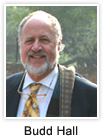 We are most often told that when the idea of the university was first put forward in ancient India, Egypt or some years later in medieval Europe, that a small group of people wanted to create a space for intentional learning in ways that would allow them to understand their world, support dreams of a better life and spread good ideas that had been hitherto the domain of the few. The name that was given to this space was university. Over the years the idea of the university has proliferated with the European idea of the university winning out and being spread around the world so that today, a university teaching in Tanzania will understand the life of her counterpart in Nigeria, India, Brazil or
We are most often told that when the idea of the university was first put forward in ancient India, Egypt or some years later in medieval Europe, that a small group of people wanted to create a space for intentional learning in ways that would allow them to understand their world, support dreams of a better life and spread good ideas that had been hitherto the domain of the few. The name that was given to this space was university. Over the years the idea of the university has proliferated with the European idea of the university winning out and being spread around the world so that today, a university teaching in Tanzania will understand the life of her counterpart in Nigeria, India, Brazil or
Canada. We have a dizzyingly number of universities with new ones popping up weekly in the middle-income nations.
But as the idea of the western university has spread, so too has the discomfort of some that the modern university has actually restricted the epistemological base too narrowly. Many groups of people do not find the knowledge of their lives, their ideas, their relations with the earth, their struggles, their purposes of learning present in the universities that they encounter. The dominant epistemological base of the modern university is largely what we often refer to as the Western Canon, the body of knowledge that emerged some 500-600 years ago in Western Europe which is now studied everywhere.
In the absence of space within the contemporary university some people are going back to the origins of the idea of the university to reclaim the term university itself and creating spaces for learning in new ways, with new approaches to the meaning of truth, or new ideas about the life of the spirit, or new ideas about ecology or a reinvigoration of Indigenous languages and culture. We have written before about the Mpambo African Multiversity and the University of Abalahli basemjondolo, both in Africa, but a two person team of academic film makers and open intellectuals, Kelly Teamey and Udi Mandel have set out to document the growth of some of these new spaces.
They write in a note to Rajesh and myself,
“Along with my husband, Udi Mandel, we spent a year travelling to, visiting with, and learning from around 20 ‘alternative’ places of HE (all emerging from indigenous communities and social/ecological movements) in North/Central/South America, Australia, NZ, Thailand and India.
We left academic jobs to do this, to go on this journey funding ourselves with savings, small donations, etc. – I was a lecturer in Education and International Development at the University of Bath in the UK and Udi in Social Anthropology at the University of Bristol. Udi is also a filmmaker — and the core of what we are doing within this project is a series of shorter films (one on each of the places we visited) and a feature-length film that draws 6 of these places together alongside a narrative of our own (un)learning along the journey.
You can see a 4-minute intro clip that they have released a couple of weeks ago: https://vimeo.com/102593162 — it will give you a better sense of what they are doing. They also have a blog – https://enlivenedlearning.com
Some Questions
1. Do you know of other such reinventions or taking back of the university concept?
2. Are there elements in these new flowers growing through the cracks that might help to decolonize or transform aspects of our dominant university paradigm?
3. How can we give more visibility and encouragement to these kinds of autonomous learning spaces?
4. What does it say about the nature of knowledge?
Budd L Hall, Sept 27, 2014





